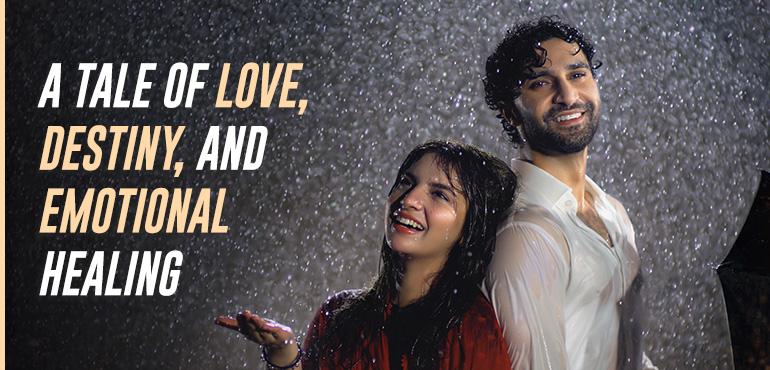
As Meem Se Mohabbat concluded its much-loved journey on HUM TV, it cemented itself as one of the most emotionally rich and thoughtfully told Pakistani dramas of 2024. Written by the acclaimed Farhat Ishtiaq and directed by Ali Hassan, the serial transcended genre labels—it was not just a love story but a meditation on trauma, healing, and the quiet bravery of choosing oneself.
At its core were two deeply contrasting protagonists: Talha Ahmed (Ahad Raza Mir), a withdrawn and deeply wounded architect, and Roshi ‘Ayat Suleman’ (Dananeer Mobeen), a vibrant soul stifled by familial control. The tension between Talha’s need for emotional safety and Roshi’s hunger for expression created a dynamic rarely seen in mainstream dramas. Their relationship unfolded not with high-pitched confessions but through emotional stillness, making the love feel earned, not forced.
Ahad Raza Mir’s portrayal of Talha was a masterclass in subtlety—internalized grief, muted vulnerability, and moral restraint. Dananeer Mobeen’s transformation into Roshi silenced critics who once questioned her acting range. She embodied Roshi’s emotional evolution with honesty, especially in scenes where restraint, not rebellion, defined her strength.
Asif Raza Mir brought quiet gravitas as Talha’s father, and Naveen Waqar delivered one of her most memorable performances as Sadaf—Roshi’s conflicted, emotionally manipulative mother. Her final confrontation with Roshi, rich in denial and generational trauma, became one of the series’ most talked-about moments.
But one of the most beloved surprises of the show was the character Mohid, played by the talented Abu Huraira. As Talha’s young son, Mohid didn’t just serve as emotional glue—he brought innocence, healing, and emotional perspective. His scenes with Talha softened the audience’s view of the otherwise emotionally distanced father, while his bond with Roshi added layers of tenderness and familial warmth. Viewers praised Abu Huraira’s performance for its natural charm and emotional authenticity, calling Mohid “the heart of the finale.”
“Where fate intertwines with choice, and love blossoms amidst life’s quiet revolutions”.
Zarrar Khan as Umar brought humor, relatability, and compassion, offering a gentle counterbalance to the drama’s heavier emotional beats. He emerged as one of the show’s most endearing characters, with audiences appreciating his grounded energy and emotional intuition.
Visually, Meem Se Mohabbat stood apart. The cinematography delicately mirrored the characters’ internal landscapes, using light and negative space to emphasize isolation, longing, and emotional stillness. The Original Sound Track, with its melancholic melody, became a hit in its own right—amplifying the story’s emotional atmosphere and becoming a familiar echo for fans even after episodes ended.
The drama’s final act was widely celebrated for choosing emotional realism over melodramatic resolution. Rather than offering a perfect ending, it gave closure through accountability, acceptance, and emotional growth. The moment Roshi calmly but firmly asserts herself to her mother—without shouting, without defiance—was viewed as a landmark moment in recent Urdu drama storytelling.
What truly set Meem Se Mohabbat apart was its nuanced handling of intergenerational trauma, emotional control, and the subtle face of female patriarchy. It did not villainize its flawed characters but showed how even love, when rooted in fear, can suffocate rather than nurture.
In a year filled with dramas clamoring for attention through sensational twists, Meem Se Mohabbat chose grace, silence, and sincerity. It gave us characters who grew from pain, love that healed rather than hurt, and storytelling that asked viewers to feel rather than judge.
